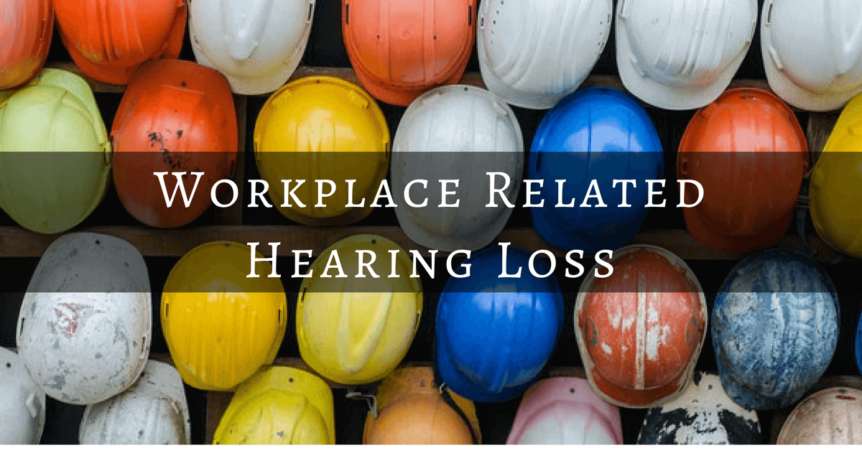We can take all sorts of preventative measures to protect our hearing in our own lives, but we often have little control over the noise levels we’re exposed to in the workplace. Just like that pesky coworker who always manages to distract you with inane conversation when you’re in the middle of a focused task, some aspects of the workplace just have to be endured. Your hearing health however, is a delicate system that can be irrevocably damaged. If there is an opportunity to shift your environment in favor of better long-term hearing health, it’s worth taking a second look.
Noise on the rise
Our environment is noisy and just seems to be getting more so. Have you ever traveled to Niagara Falls? When you’re up close, the sound of the falls is overwhelming. Thanks to the small city that grew up around this natural wonder, the sound isn’t as apparent when you’re at any sort of a distance. Imagine how loud those falls sounded in past centuries, before machinery and technology amplified our collective volume. You could probably hear the roar of the falls well before you could see them!
Workplace related hearing loss is widespread
Workplace related hearing loss, also referred to as Occupational Hearing Loss, is often the result of a too noisy environment. The sensitive structures of the inner ear were not designed to be exposed to dangerously loud repetitive sound. Our ears were built to withstand the natural world. The Centers for Disease Control and Prevention (CDC) estimate that 22 million workers in the United States are exposed to dangerous and potentially harmful noise each year. Safety experts urge workplaces to maintain levels below 85 decibels. For comparison, the noise of a lawnmower comes in at about 90 decibels. If your workplace sounds louder than a lawnmower, it may be damaging your hearing.
Potentially harmful industries
We can’t completely eliminate hazardous noise environments, at least not right now. Many of these industries are the unsung heroes of our society, whose work is essential to the normal functioning of our towns and cities. Construction, farmers, manufacturing and military employees are often working tirelessly in perpetually clamorous situations. Even professional musicians, whose careers seem harmonious and romantic, are often at a high risk for workplace hearing loss.
Signs your workplace might be damaging your hearing
If you’ve ever left work with a ringing in your ears, you might be at risk of more than a pounding headache later. Over time, this sort of reaction to a loud work environment can do turn into irreversible hearing loss. It’s the body’s way of saying, “too loud!” Another simple way to take the temperature of your workplace’s noise levels is by noticing whether you have to shout to be heard by a coworker if they’re less than three feet away. If so, it is time to look at potential solutions.
Steps to protect hearing health
The good news is that workplace related hearing loss can be prevented and you don’t have to change occupations! The simple act of wearing protective gear can alleviate much of the risk. There is evidence that wearing hearing protection equipment goes a long way in preventing hearing loss, however, the most effective interventions included a type of education, distribution of hearing protection devices, and noise assessments. Following up these important preventative steps with hearing testing was particularly instrumental in mitigating dangerous noise levels.
Other interventions that are easy to implement include setting up noise barriers between the noisiest machinery and affected workers, or scheduling breaks so that exposure is limited. Even keeping up with routine maintenance on problematic machinery can make an impact on lowering those decibels!
The cost of workplace related hearing loss
While it’s difficult for a small company to make sweeping changes to their hazardous noise policies and solutions, the actual cost of workplace related hearing loss can be considerable. Those suffering from this type of hearing loss, which is usually quite gradual right up until the point it’s no longer unavoidable, often report a tremendously higher sensitivity to loud noises that make it impossible for them to continue working in these environments. Treatment, including medications and hearing devices, adds up in addition to those lost wages. This doesn’t even take into consideration the loss of healthy hearing, which is just something you can’t put a price on.
If you work in a noisy industry, it’s important to establish a baseline measurement of your hearing abilities. At Comprehensive Ear and Hearing, we provide hearing tests and hearing aid fittings. Contact us for a consultation.


